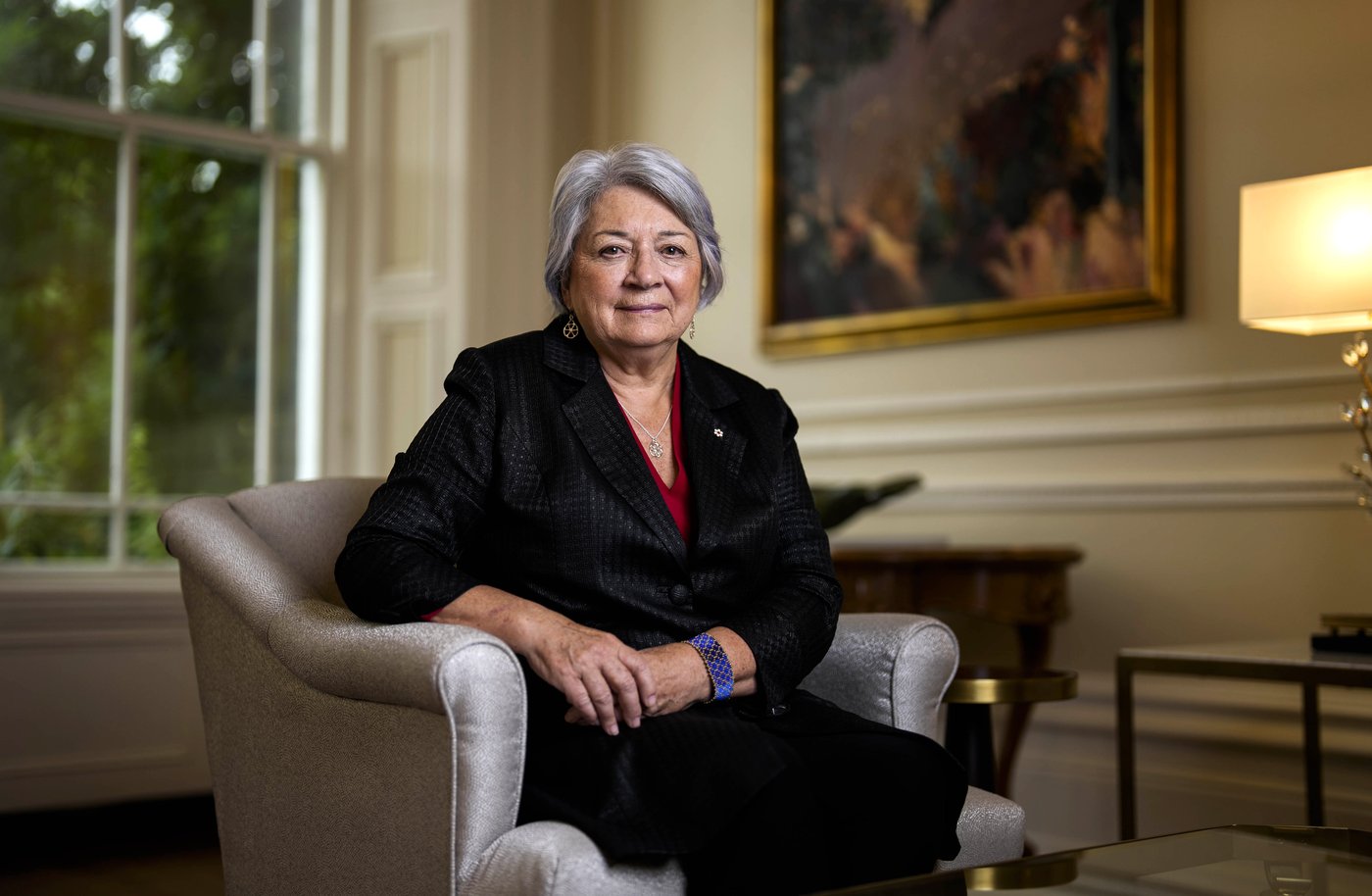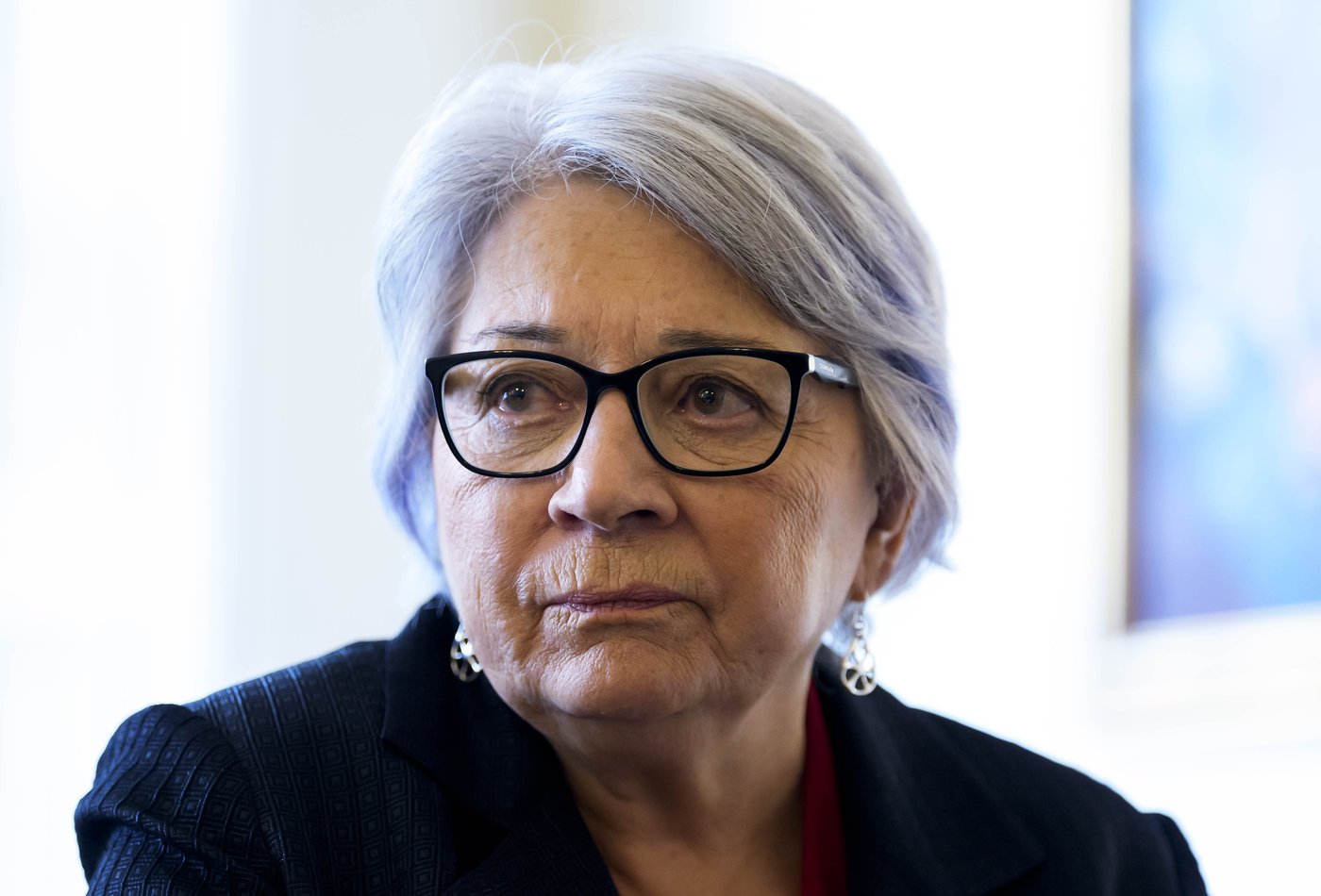Elevate your local knowledge
Sign up for the iNFOnews newsletter today!
Sign up for the iNFOnews newsletter today!
Selecting your primary region ensures you get the stories that matter to you first.

OTTAWA — Reconciliation has not returned to the back burner as Canada pushes forward to develop major projects, Gov. Gen. Mary Simon said in an interview just ahead of the National Day for Truth and Reconciliation.
Simon told The Canadian Press she sees a firm commitment to ensure Indigenous Peoples are involved as the major projects process evolves.
“We need an economy for Indigenous Peoples as well,” Simon said. “You can’t thrive — and survive — without an economic base.”
The major projects legislation that passed in June received widespread condemnation from Indigenous leaders who feared it wouldn’t respect their rights to free, prior and informed consent.
The bill allows the federal government to sidestep existing laws and select projects to fast track for development with cabinet approval. No Indigenous-lead projects were selected for the first round of recommendations to the newly formed Major Projects Office.
Simon said there has been much discussion in recent months about increasing development in the country and removing interprovincial trade barriers, which she sees as a sign the country is coming together with reconciliation at the top of mind.
“There is a commitment to make sure that Indigenous Peoples are working with the government and developers and businesses to provide for partnerships, to provide for better jobs” rather than ones Simon characterized as “menial.”
“That discussion is changing because education is becoming more of an influence on the younger generation. People are going to school more and more, whereas after the residential school issue, people didn’t like to go to school.”
The residential school era refers to a period between 1857 and 1996 where 150,000 Indigenous children were forced to attend church-run, government-funded schools where they were barred from speaking their languages in institutions often rife with abuse located far away from their families and communities.
An estimated 6,000 children died while attending the schools, although experts say the actual number could be much higher.
Sept. 30, known as Orange Shirt Day or the National Day for Truth and Reconciliation, is meant to honour survivors and those who never came home.
Until 1961, First Nations people were automatically stripped of their status if they enrolled in university. Losing their status meant they lost their rights as a First Nations person.
Statistics Canada data show 8,400 First Nations, 6,600 Métis and 250 Inuit graduated from a post-secondary institution in 2022 — numbers largely consistent with the earliest accessible study from 2014.
Statistics Canada estimates the size of the Indigenous-run economy at $56.1 billion in 2021 — about 2.4 per cent of Canada’s gross domestic income. Indigenous gross domestic income has been increasing at a rate faster than the national economy.
“The conversation is changing, so long as the commitment (to reconciliation) is there,” Simon said.
“In the end, we’re all winners. We have to live side-by-side. We have to get along. And being inclusive doesn’t isolate people — it brings people together.”
But the part before reconciliation — the truth — may be a bigger obstacle for the country, with Simon saying Canadians largely remain uninformed about the country’s colonial legacy due to a lack of education on the topic.
“The people of Canada really didn’t know what was going on behind closed doors,” Simon said, acknowledging there is a gradual increase in awareness in the last three decades as survivors of residential schools have begun sharing their stories publicly.
“The difficulty I still have is that we don’t have a unified curriculum for the history of the country. Because if we can teach our young people the history of our country in a way that just tells it the way it happened with no judgments because it’s an education, then they will learn and be more empathetic,” she said.
Simon made history in July 2021 when she was appointed Canada’s first Indigenous Governor General and the first Inuk woman to hold the role.
Four years later, Prime Minister Mark Carney’s government similarly made history by appointing Mandy Gull-Masty, a Cree woman, as minister of Indigenous Services.
“It was heartwarming to see,” Simon said.
“Hopefully, appointments like the minister are going to help women look at things in a more positive way, and (show) that we can lead.”
This year also saw King Charles make a historic land acknowledgment in his throne speech on behalf of the federal government following the election.
Asked what that meant for the country, Simon pointed out he agreed to do it when he had the authority to change the speech’s content.
“If he doesn’t believe it, I don’t think he would say it,” she said.
“I can’t tell you 100 per cent how he thought about it, but when I say it — when I acknowledge the land — it’s very meaningful to me because I’m acknowledging that this land has been taken care of by a certain nation for millennia. And we’re still here.”
As the country continues down the path toward reconciliation, Simon said there’s still work to do on implementing the Truth and Reconciliation Commission’s Calls to Action, along with the Office of the Independent Special Interlocutor’s report on Missing Children and Unmarked Graves and Burial Sites associated with Indian Residential Schools.
Some watchers of the government’s progress on the Calls to Action, including the Yellowhead Institute, ceased releasing annual reports because the progress was stalling and some years saw none completed.
“There’s a lot of work that’s still out there. And I just want the commitment to keep going,” Simon said.
“Reconciliation is a value. It’s not a policy issue. So when it’s a value, like empathy, happiness, you know, it’s something that you carry with you. So it makes the conversation easier in terms of reconciling differences.”
This report by The Canadian Press was first published Sept. 29, 2025.

This site is protected by reCAPTCHA and the Google Privacy Policy and Terms of Service apply.
Want to share your thoughts, add context, or connect with others in your community?
You must be logged in to post a comment.